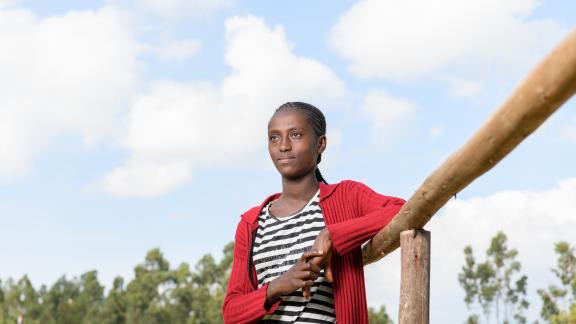In 2015, the United Nations General Assembly resolution (A/RES/69/293) proclaimed 19 June as the International Day for the Elimination of Sexual Violence in Conflict. This annual commemoration raises awareness on the need to end conflict-related sexual violence, honours survivors around the world, and pays tribute to all those who have courageously devoted their lives to the eradication of these crimes. Today and every day, IPPF joins the rest of the world to stand up against these atrocities on the most vulnerable and respond to the Sexual Reproductive Health and Rights (SRHR) needs of those affected.
Sexual violence refers to any sexual act or attempt to obtain a sexual act, unwanted sexual comments or acts to traffic, that are directed against a person’s sexuality. This involves using coercion regardless of the relationship to the victim, in any setting, including at home and at work. If there is an already high rate of such violence in normal times, sexual violence is further exacerbated in conflict settings. Sadly, it has been and continues to be used as a weapon of war, and terror, a tactic meant to destabilise opponents. Not too far from war zones, girls and women also continue to be victims of sexual abuse in their homes as they become the sole breadwinners of separated families, hence targeted by perpetrators in their daily livelihood activities.
Sexual violence against girls, women, boys and men can lead to a range of adverse physical, mental and psychosocial health outcomes, including negative impacts on sexual and reproductive health such as unintended pregnancies, gynaecological problems and STIs, including HIV. Across a range of countries on the African continent from DRC to South Sudan, and Ethiopia, we have witnessed the scale of these consequences, especially when diplomatic voices get swallowed up by those of armed groups perpetuating and reinforcing acute and protracted conflicts.
To respond to the urgent Sexual and Reproductive Health (SRH) needs of affected populations at the onset of a humanitarian crisis, IPPF implements the Minimum Initial Service Package (MISP) for SRH. The MISP is a series of crucial, lifesaving activities required to mitigate and address any excess SRH-related morbidity and mortality. In acute, more protracted, and post-conflict settings, our network of locally owned Member Associations and Collaborative Partners provide a package of comprehensive sexual and reproductive health and rights services and activities to meet the needs of women, girls, and young people.
Working with communities and persons affected by war, we mobilize all actors to prevent and respond to sexual violence in conflicts. This ranges from our community health workers raising awareness on sexual and gender-based violence to our health care providers offering clinical management of rape and other forms of sexual violence. We have also set up strong and effective referral pathways with other actors to ensure the timely provision of psychosocial services and legal support. As much as possible, we support survivors in setting up and managing income-generating activities.
We also value the power of collaboration and cooperation in preventing and addressing sexual violence in conflict settings. As such, we make it a priority to participate effectively in relevant cluster and sub-clusters activities in humanitarian responses. This in a bid to ensure that sexual and reproductive health and rights are not overlooked and are sufficiently funded to be able to respond to sexual violence.
Our strong advocates do not relent in their drive for regional and national policy changes and implementation to fight against impunity. By working on policy changes, we contribute to ensure that perpetrators are held accountable for their actions.
It is imperative that States, UN agencies, civil society organisations, the media and communities continue to engage in preventing conflicts and crisis, be they man-made or natural, caused by climate changes, and raise awareness on the fight against sexual violence. IPPF will continue to stand up against and condemn all forms of sexual violence as a tactic of war and strengthen our service delivery to mitigate risks but also respond to the dire SRHR needs of women, girls and young people in all their diversity in conflict settings.
By
Helene Stephanie Mekinda Ndongo
IPPF Africa Region Specialist Gender, Inclusion and Humanitarian Response
when
region
Africa
Subject
Sexual Health









